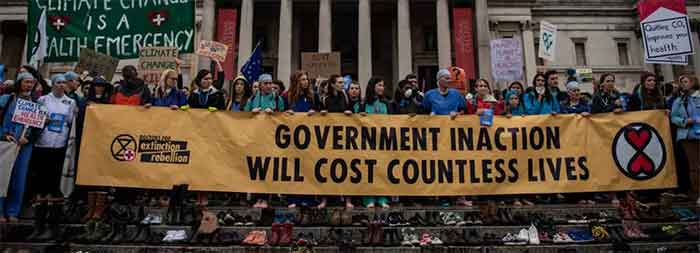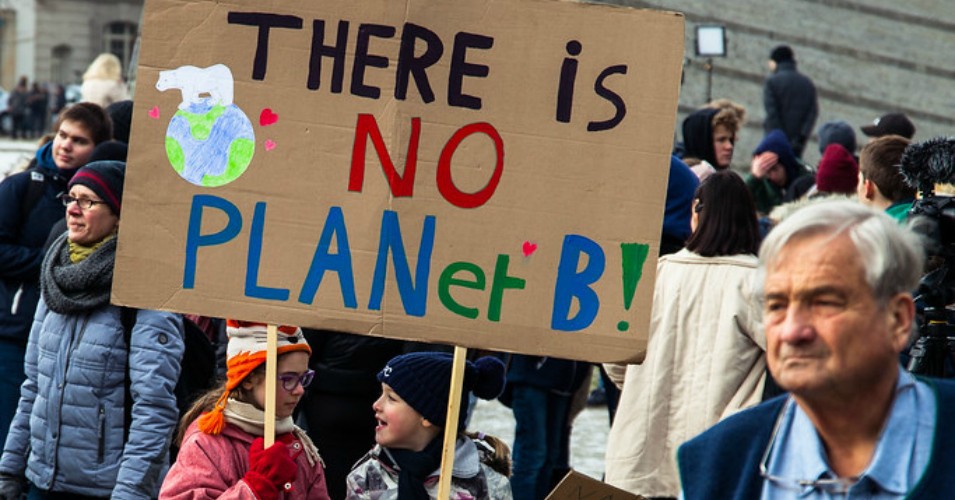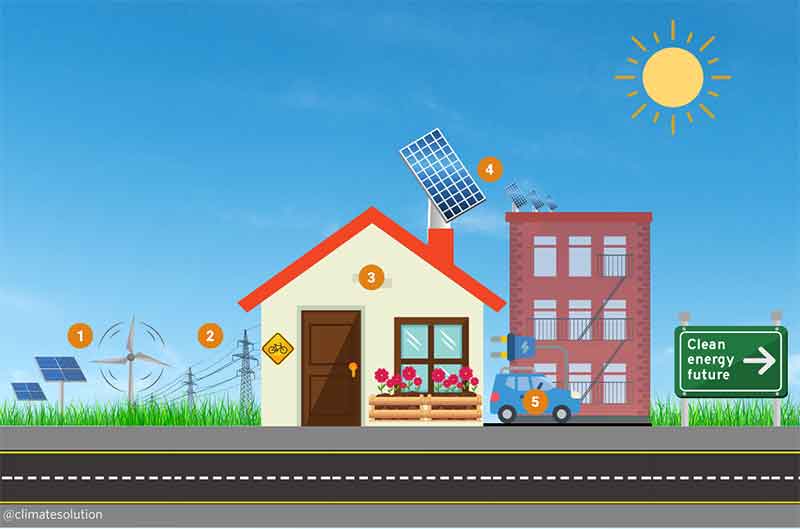
Every year, the intensifying climate crisis brings more pain and suffering to hundreds of millions of people across the globe. The only way we can exit this climate crisis, and avoid an accelerating disaster, is by launching an urgent system-wide transformation of our economies and societies. But still, as the 2022 edition of the United Nations Environment Programme’s (UNEP) “Emissions Gap Report” shows, countries are not stepping up.
At the Glasgow climate summit last year, known as COP26, nations signed up to a statement calling for climate pledges that would bring deeper and faster cuts to greenhouse gas emissions. Did this happen? The answer is a resounding “no.” Collectively, updated pledges since COP26 shave less than 1 percent off projected emissions for 2030. The gap between where emissions need to be in 2030 to meet the Paris Agreement goals and where they are predicted to be in that year remains huge.
This leaves us heading for a 2.4 to 2.8 degrees Celsius increase in temperatures by 2100, depending on whether we analyze unconditional national climate commitments, conditional national climate commitments or current policies. Right now, we are in a world at 1.1 degrees Celsius above pre-industrial temperatures. Just look at what this brought to Pakistan recently: an apocalyptic flood and over 30 million people impacted. Temperature rises in the range this report predicts won’t give us once-in-a-century floods in Pakistan. They will give us annual floods, storms and heatwaves across the globe. They will give us dying ecosystems and species. They will give us more hunger, more thirst, more migration, more pain.
To avoid this future, we need to meet the goals of the Paris Agreement. To get on track to limiting global warming to 1.5 degrees Celsius, we need to cut 45 percent off the greenhouse gas emissions that we can expect in 2030 based on policies currently in place. To hold global warming well below 2 degrees Celsius, the challenge is still significant: 30 percent by 2030. Beyond 2030, emissions must continue to decline rapidly to avoid exhausting the remaining atmospheric carbon budget.
If we are serious about getting this done, we need to kick start a system-wide transformation, right now.
In the electricity supply, industry, transport and buildings sectors, we need to avoid locking in new fossil fuel-intensive infrastructure. We need to advance zero-carbon technologies, market structures and planning for a just transformation. We need to apply zero-emission technology and behavioural changes to sustain reductions to eventually reach zero emissions.
In food systems, we must act on the protection of natural ecosystems, dietary changes, improvements in food production and the decarbonization of food supply chains, while securing food security for all. Action in these four areas can reduce predicted 2050 food systems emissions to around one-third of current levels.
The financial system must become an enabler, rather than a barrier, to the transformation to a low-carbon economy, which requires annual investments of at least $4 trillion to $6 trillion USD per year. This is a relatively small (1.5 to 2 percent) share of total financial assets managed, but significant (20 to 28 percent) in terms of additional annual resources needed. Delivering such funding will require making financial markets more efficient, introducing carbon pricing, creating markets for low-carbon technology through shifting financial flows, mobilizing central banks and much more.
Many people will say this can’t be done over the next eight years. I say we must try. Even if we don’t get there by 2030, every fraction of a degree matters to vulnerable communities, endangered species and ecosystems—and eventually to our own livelihoods. We will be setting up a carbon-neutral future: one that will allow us to bring down temperature overshoots and deliver many other social and environmental benefits, like clean air, green jobs and universal energy access.
Many people will also say that we are too busy dealing with other crises to transform our economies. I say these other crises are opportunities to reform our economies. We have missed the chance to invest significantly in a low-carbon recovery from the COVID-19 pandemic. Now, we are in danger of missing the closing window to boost clean and efficient energy as a response to the energy crisis. Instead of missing such opportunities, we must capitalize on them with confidence.
I urge every nation, every government, to pore over the solutions in this report and build them into their climate commitments. I urge the private sector to start reworking their practices. I urge every investor, public and private, to put their capital toward a net-zero world. This is the only way to kick-start a system-wide transformation across the globe. And it is the only way to shed the shroud of greenhouse gases that is slowly baking our planet and putting humanity’s future in jeopardy.

















































